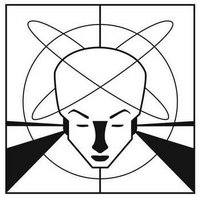Psychic.
Psychic is a term relating to or denoting mental abilities or phenomena that are apparently inexplicable by known natural laws, since they seem to transcend the confines of the brain. People who are thought to have these abilities or to be able to produce these phenomena are often called "psychics". The term comes from the Greek word psychikos, meaning "of the soul, mental," which is in turn derived from the Greek word psyche (soul/mind). It was first used by French astronomer Camille Flammarion (1842 – 1925), who was also a noted spiritualist and psychical researcher.
Psychical research
The rise of modern inquiry into reports of psychical phenomena coincided with the introduction of modern Spiritualism in 1848 and the movement's claims of paranormal abilities. Shortly thereafter, the Society for Psychical Research was founded in Britain (1882) and the American Society for Psychical Research was founded in the United States (1885). Spiritualism was so widespread and the reports of its effects so numerous and impressive that it was inevitable that scientists would be attracted to the alleged phenomena. Early psychical researchers concerned themselves with studying mediums and spiritualist claims. In the early 1900s, a dissatisfaction with the results of the research and political disagreements within psychic research organizations led to a new approach and a new term for the study of psychic phenomena: parapsychology.
Parapsychology began using the experimental approach to psychic phenomena in the 1930s under the direction of J. B. Rhine (1895 – 1980). Rhine popularized the now famous methodology of using card-guessing and dice-rolling experiments in the laboratory in an attempt to find a statistical validation of extra-sensory perception.
In 1957, the Parapsychological Association was formed as the preeminent society for parapsychologists. In 1969, they became affiliated with the American Association for the Advancement of Science. That affiliation, along with a general openness to psychic and occult phenomena in the 1970s, led to a decade of increased parapsychological research. During this time, other notable organizations were also formed, including the Academy of Parapsychology and Medicine (1970), the Institute of Parascience (1971), the Academy of Religion and Psychical Research, the Institute of Noetic Sciences (1973), and the International Kirlian Research Association (1975). Each of these groups performed experiments on paranormal subjects to varying degrees. Parapsychological work was also conducted at the Stanford Research Institute during this time, research which continued till February 2007.
The methodology and results of parapsychological work are often disputed. However, a consensus within the field of parapsychology is that certain types of psychic phenomena such as psychokinesis, telepathy, and precognition are well established experimentally. Critics such as Ray Hyman argue that the evidence for psi (psychic phenomena) needs further replication and theoretical work before it is accepted. However, the existence of psychics and the validity of parapsychological experiments is disputed by skeptics.
Psychic is a term relating to or denoting mental abilities or phenomena that are apparently inexplicable by known natural laws, since they seem to transcend the confines of the brain. People who are thought to have these abilities or to be able to produce these phenomena are often called "psychics". The term comes from the Greek word psychikos, meaning "of the soul, mental," which is in turn derived from the Greek word psyche (soul/mind). It was first used by French astronomer Camille Flammarion (1842 – 1925), who was also a noted spiritualist and psychical researcher.
Psychical research
The rise of modern inquiry into reports of psychical phenomena coincided with the introduction of modern Spiritualism in 1848 and the movement's claims of paranormal abilities. Shortly thereafter, the Society for Psychical Research was founded in Britain (1882) and the American Society for Psychical Research was founded in the United States (1885). Spiritualism was so widespread and the reports of its effects so numerous and impressive that it was inevitable that scientists would be attracted to the alleged phenomena. Early psychical researchers concerned themselves with studying mediums and spiritualist claims. In the early 1900s, a dissatisfaction with the results of the research and political disagreements within psychic research organizations led to a new approach and a new term for the study of psychic phenomena: parapsychology.
Parapsychology began using the experimental approach to psychic phenomena in the 1930s under the direction of J. B. Rhine (1895 – 1980). Rhine popularized the now famous methodology of using card-guessing and dice-rolling experiments in the laboratory in an attempt to find a statistical validation of extra-sensory perception.
In 1957, the Parapsychological Association was formed as the preeminent society for parapsychologists. In 1969, they became affiliated with the American Association for the Advancement of Science. That affiliation, along with a general openness to psychic and occult phenomena in the 1970s, led to a decade of increased parapsychological research. During this time, other notable organizations were also formed, including the Academy of Parapsychology and Medicine (1970), the Institute of Parascience (1971), the Academy of Religion and Psychical Research, the Institute of Noetic Sciences (1973), and the International Kirlian Research Association (1975). Each of these groups performed experiments on paranormal subjects to varying degrees. Parapsychological work was also conducted at the Stanford Research Institute during this time, research which continued till February 2007.
The methodology and results of parapsychological work are often disputed. However, a consensus within the field of parapsychology is that certain types of psychic phenomena such as psychokinesis, telepathy, and precognition are well established experimentally. Critics such as Ray Hyman argue that the evidence for psi (psychic phenomena) needs further replication and theoretical work before it is accepted. However, the existence of psychics and the validity of parapsychological experiments is disputed by skeptics.

0 Comments:
Post a Comment
Psychologist